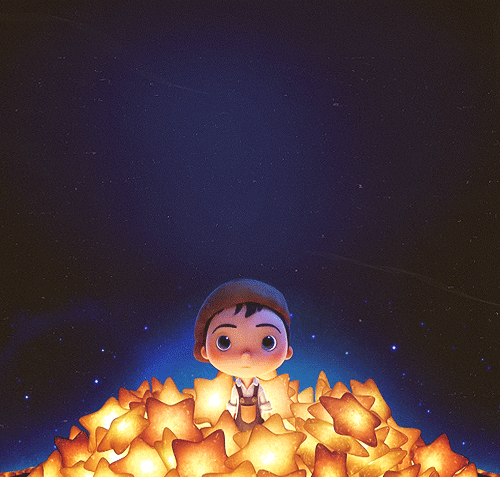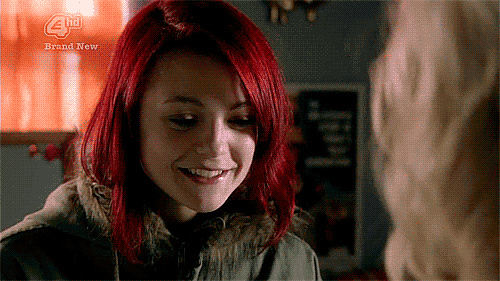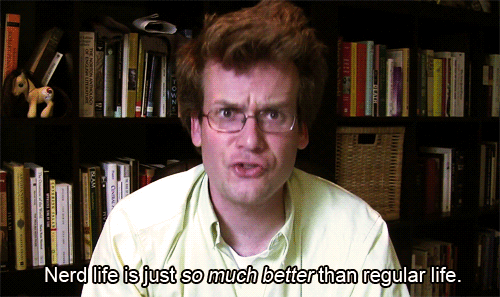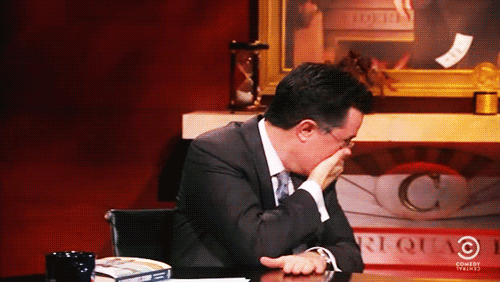Laila Blake's Blog, page 16
May 27, 2013
Writing Erotica as a Feminist
Please be advised that this post represents my personal beliefs and preferences. Obviously, these are not universal truths and writers who don’t believe in them are selling a lot of books, too.
I have written a similar blog post about writing romance or women’s fiction but it is still something that weighs on my mind a lot. Ever so often, I write erotica – I also read erotica. Admittedly more short-stories than novels, but I do enjoy the occasional sojourn there as well. And unfortunately, I often don’t enjoy them for a couple of really simple reasons: I find them problematic.
Especially for the anthologies I write for, I am lucky to work with a bunch of incredibly wonderful women – who are all highly educated, politically aware, funny, gracious and generous – not to mention very talented. I consider myself fortunate to learn from them and to be able to hold them up as an example against the kind of erotica that makes my skin crawl.
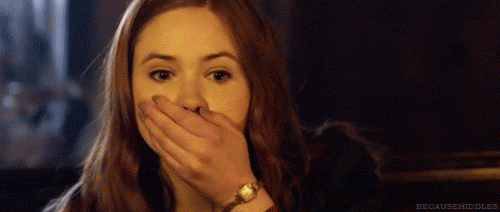
Characterization and Objectification
Vastly important to me – both as a reader and a writer of erotica – are the characters. I feel like so often, they are a little on the under-developed side. This is particularly problematic when it becomes increasingly objectifying, especially on the side of the female character.
On the basis of pure reading enjoyment – unless the character is interesting enough to feature in any other book, with a backstory, dreams, a job, hobbies, opinions etc., I don’t want to read about them having sex. Of course, especially in shorter works this doesn’t have to be beaten into the reader with passages over passages of useless description but the reader is pretty smart. It is all in the details, the reactions, the clothes, the stories and thoughts.
I am only interested in reading or writing erotica about three-dimensional characters, characters that represent real human beings… not just puppets that play out some sex fantasy. Basically, if they aren’t interesting and enticing clothed and out of any sexual context, why would I want to know more about them naked?
Personally, when I don’t feel like I’m going to miss those characters terribly and have wild ideas about plot-less full-sized novels – then I know I did something wrong in the short and will revise.
And yes, this does have a feminist aspect to it as well. I have read that erotica and romance is supposed to be a fantasy that takes women on a journey out of themselves and their mundane problems. Like fashion is a fantasy and the general beauty industry, I suppose.
I disagree with that – I want to read about real women: with flaws, insecurities, opinions, humor etc. – not some fantasy of perfection. Or worse: a fantasy pulled straight out of Hustler.
I have also read that women are supposed to like reading about objectified men. You know the type: six-pack, perfect abs, tanned, millionaire, but still kind, sophisticated and with a lot of spare time and obviously perfect in bed as well… *hem*. Do we really? I know it is a trope in many books but do we? I always find that a terrible turn-off. I like my men real, too  .
.
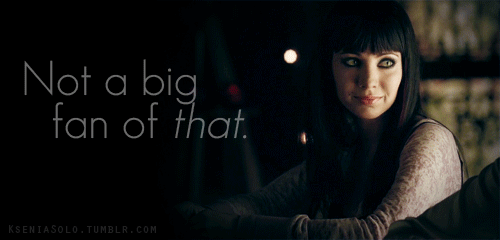
Consent
You probably guessed that I can’t write a post like this without getting to talk about consent. There is an argument to be made that we are writers and not law-makers and social justice experts and we don’t have to worry about the nature of consent – but I don’t believe that.
There are still countless young men and woman who have no idea what consent means, who think that if a girl just says “no” once or twice but then gives up when you persist, that this is consent and totally okay behavior. A fifth of all women aren’t raped by hooded and cloaked mental patients but by college boys and neighbors – many of whom still firmly believe that a woman’s “no” doesn’t actually mean no.
I can’t change that. I’m just one person, but I can at least not contribute to that idea by writing stories with dubious consent. This is easier when writing about couples but even with strangers who get together, there is usually ample opportunity to make sure both parties consent, respect each other and enjoy what is going on.
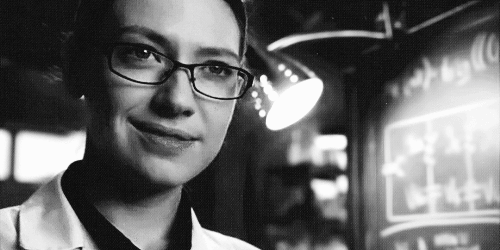
Writing about reluctance is fine, too. It is after all, something that a lot of women would feel – but it has to be handled with care. If she says “no” and he persists and she ends up having a great time, the female character might be off fine, but the male character is still engaging in highly problematic behavior. Yes, even if he gets her off afterwards.
Dangerous Language
Another issue I often stumble across has to do with the use of language, especially when we are talking about a story told either from the male character’s point of view (whether first person or third person limited) or in third person omniscient. This becomes even more important when we venture into bdsm territory where consent and slut-shaming/humiliation issues are even more complicated than with regular sex.
So what about words like slut, whore or bitch? I am not in the business of censorship and I know they can be used to great effect. But without explaining a great deal, a man using them in narrative to describe a woman will always make me hate him. Always. That is okay, by the way, because in writing we sometimes have villains – but I get really angry at an author when they let a male character engage in really sexist and problematic behavior while still posing him as the hot sexy romantic lead.
Slut in direct speech is a whole different ball-game by the way. When we are talking about a bdsm story, there are certain genre ideas already in place and that word can be used to great effect… however direct speech is different. We say things we don’t mean all the time – especially during sex, we role-play and we engage in dirty talk etc. but we don’t mean that out of context. To have a man think it is far worse.
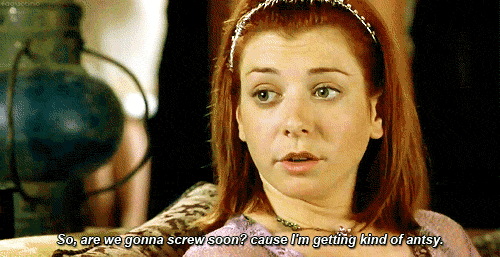
It comes down to respect – whenever I read any erotica, I need to feel like both participants mutually respect each other and consider themselves equals – no matter what kinky stuff they get up to, no matter how they talk to each other in the moment because it turns them on – deep down the respect has to be there. And if a man actually calls a woman a slut in his head, it’s over for me. Done. I’m not interested in reading erotica about pick up artists and misogynists.
Breaking the rules
Now, far be it for me to say you can’t write about problematic people – men or women. Not everybody has to be 100% likeable, people have prejudices and flaws and that is a good thing. The last thing I want is for people (who managed to read all the way here) to walk away from this with the impression that erotica should always be about perfect people. Flawed people are brilliant characters!
However, they have to be approached in such a way that the reader knows the heroine and the writer are aware of this. And depending on how flawed we are talking, her feelings, the sex, the dialogue and the ending might reflect it, too.
[Except please, please for the love of my sanity, let it not be the kind of resolution where the guy's general misogyny stays the same but he realizes that this one girl is different from all the other ones and deserves his respect after all... *coughs up some vomit*]
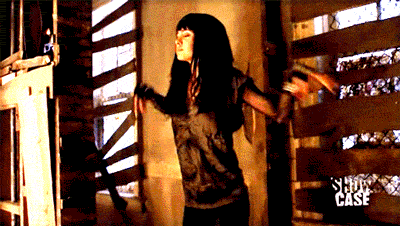
If we’re writing romance or erotic romance, there has to be a happy ending, but you don’t have to write that. In straight up erotica, you can do what you want, and the bad guy can reach into the more taboo fantasies in readers and not get his happy ending, the hunky, hot alpha male badge. Here we might need an ending that feels like it resolves the issues and that shows the author is aware of them. It is just a matter of presenting it as a more taboo or problematic fantasy (which are totally valid!) rather than your average hot romp between consenting, happy adults.
It’s really not easy, and I think we all skirt that line all the time. I wrote a short story a while ago that is told from the man’s perspective and he thinks for the first third of the story that his girlfriend is about to break up with him. And yeah, that makes him pretty angry and ranty in his narrative, and I liked that perspective and that challenge – but I had my beta reader go over it and specifically ask her if it is too much and if the ending makes it enough obvious that he was just stuck in his own head with his own insecurities in the beginning.
Writing about slightly problematic topics is interesting and it keeps erotica fresh, but we have to be aware of those issues and approach them to the bets of our abilities instead of ignoring them.
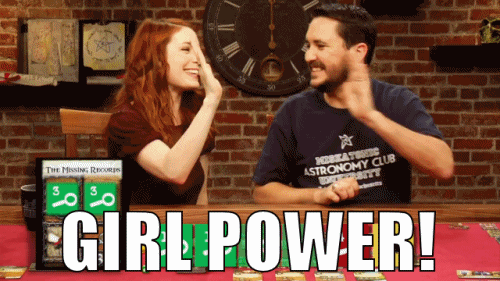
Basically, for me writing erotica is empowering for women, who have spent most of their lives being inundated with sexual fantasies produced by men and male-dominated media. Just to be clear, male fantasies are not less important – but they are also not more important, and it is high time that women have a say in how we talk about sex and arousal, in how we see ourselves as equal participants in the act. That is in the end, why issues of respect, consent and characterization are so important to me.
This is our chance to be our generation’s sex-writers and I think we should try to do a conscientious and progressive job, whether we aim to write a best seller or a short story in an indie anthology.
May 22, 2013
Amazon licenses fan fiction – wherever there might be money… for Amazon
The internet world moves so fast – I am still getting used to the Flickr changes and today everybody is talking about Amazon’s new venture: Amazon Kindle Worlds. As far as I can tell: a way for Amazon (and apparently the copyright holder) to cash in on a wonderfully cash-free community.
I want to go into my more emotional reactions in a bit – but put this warning up front. Amazon says the following:
“We will also give the World Licensor a license to use your new elements and incorporate them into other works without further compensation to you.”
This means that once posted, the TV show/book series etc. that you are writing fan fiction about, is free to mine your stories for characters and ideas without ever mentioning you or paying you in any way. Finally a way to make money out of fan fiction… but not really for the writer.
Also, Amazon takes all your rights to the work. All of them, apparently indefinitely – that means whatever else they do with your work, they never have to pay you for anything. That is not a contract any publishing house would dare to put in front of a writer.
And this is the crux of it, really. Because fan fiction has always been an area at the edge of legality, apparently their though process is: “they don’t deserve any better.”
Better to be paid a token than nothing at all?
You might actually agree with it. After all, even if you do post your fan fiction online somewhere, you never really completely own the copy right if you use characters, places etc. from copyrighted works. So what’s the big deal?
For me, the big deal is that this is yet another way to exploit young people’s dreams of being a writer for a quick buck. Like Amazon’s self-publishing ventures, which (while there are notable exceptions), yield the individual writer very little money for months of labour but pay Amazon incredibly well, this again reeks of flooding the market with low quality writing to fill Amazon’s pockets.
I wrote fan ficton as a teenager. I think it’s a great way to get started in free, slightly rebellious or dirty writing communities where people support each other and have fun together over a mutual obsession. The idea of exploiting that community for gain by fuelling some people’s hope of a quick buck makes me really really sad. Because who can blame them? Even if you do earn maybe 50$ in the end – that’s 50$ more than you would have gotten in a free community. And yet, this trend scares me.
This trend says that writers should be happy to be paid at all, whatever the amount. It feels like one of those copy writing internet traps where they pay you 3$ for creating an hour’s worth of internet content – because people will do it for so little. It devaluates not only the youthful enjoyment fan fiction should be – it devaluates all writing, yet again.
And while as an author, I am quite happy to pay it forward so to speak with a first or second novel – I would hope these count towards my portfolio as a writer and give me a chance at bigger and better things. It remains to be seen if this will be the case for the fan fiction writers. I mean, I don’t even think it is working for the majority of self-pubbers and they only have to fight against one stigma.
The truth is: If this had been possible when I was 17 or so, I would have done it immediately (even if they might not have taken it because of the most laughable stipulation below) but I would be mortified today. I would hate — HATE it if that writing was out there in someone else’s copyright without me able to take it down.
No porn? What?!
And last but definitely not least – what is that rule about no pornography? What is their lovely wording?
Pornography: We don’t accept pornography or offensive depictions of graphic sexual acts.
Now that is beautifully vague isn’t it? What is pornography and what just a description of a sexual act – and what in the world is an offensive depiction thereof? Is that possibly slash or people’s frequent ventures into incesty territory? It’s allowed to write books about any topic — but not a kindle world story.
While I won’t go so far as to claim that porn is the heart of fan fiction, it was always an important part for me. Isn’t that the thrill? To get to pair up the people those mean, mean writers will never let you see end up together?
After Amazon’s efforts to make it harder to find erotica through their search engine, this is just another kick at sex writing – the oh-so terrifying prospect of writers getting people off. *yawns* Really? Why are we still worried about this? The people who ostensibly read erotica are women, they are also the ones who mainly write it – I call that sexual empowerment.
But maybe Amazon just wants to make sure that the copyright-holder doesn’t have to slog through masses of ideas that only focus on hooking people up they could never hook up in the show anyway  .
.
May 16, 2013
Thoughts Too Long For Twitter
On Misappropriating Quotes
When I read beautiful, intelligent and thoughtful quotes misappropriated and credited to people like Robert Pattinson, I always think this is the ultimate victory of fantasy over reality. If the boy you like is a ungrateful, whiny, self-indulgent douchebag – he doesn’t have to be in your head and if you spread what’s in your head just far enough over the internet, maybe it drowns out the real quotes and then it’s almost like it’s true.
May 9, 2013
A Needlessly Hyperbolic Set of Gifs about Writing Epiphanies
Most of the time, even with careful planning, writing is a journey into the unknown. There is always something you don’t know from the get go, simply because it doesn’t yet occur to you that this is something you might even need.
But then you get to a place in the novel or short-story where you get the feeling that somewhere you are trying to find something but you just don’t know what it is yet. That is when writing can feel a little tedious when you feel like you are rambling in search of this ellusive realisation — maybe it’s a deeper motive, or the real conflict or issue the character is dealing with that makes them the character you have in mind. It starts to feel like a strange absence that isn’t quite noticeable enough to force you to brainstorm it, but that always leaves you feeling a little bit unsatisfied.
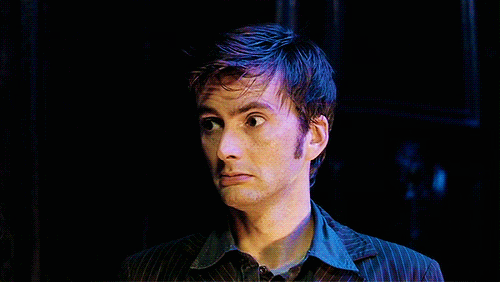
And you keep going. What else is there? We always keep going, that’s how it works. Sometimes it takes weeks of this strange, unresolved feeling – journeying through a fog bank that you can’t ever quite penetrate without ever feeling exactly lost.
This is when the perfect writerly moment sets in: the writing epiphany. I am still convinced that this feeling is why we keep doing this – it’s fleeting, incredibly so, but in it’s pure moment it is better than anything else, better than good reviews, better than praise, better than sales.
It starts like this: At some point, you write a sentence or a paragraph. It just comes out of you by force of association or resignation or because you didn’t have your defences up high enough and something real and authentic toppled out. And you stare at that piece you wrote.
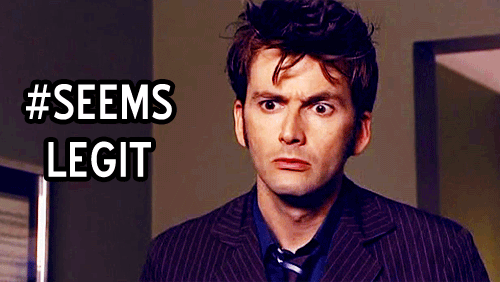
Because suddenly, your character is revealing something that sends your mind into a swirl of ideas. And this is not magic or muse, these truths were in the character all this time, you just needed to dig for them until you find them. And then you do, and suddenly everything else unravels.
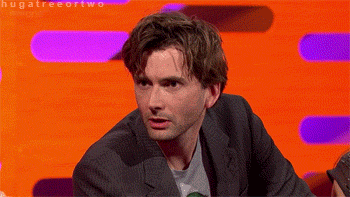
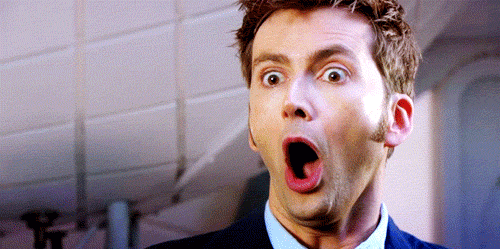
It’s like you were sitting around a Gordian knot for weeks and suddenly you tug at one little piece and everything just solves itself. Suddenly, everything your character has ever said or felt or done falls into exactly this idea. And you almost can’t believe it, it doesn’t seem possible that something that feels so new and so brilliant should have been basically in this novel from the very beginning. And now you know exactly how the novel ends — and not just the plot that most of us kind of know anyway, but how it is resolved emotionally. We don’t just know what happens but exactly why it happens and we are in love with our writing again.
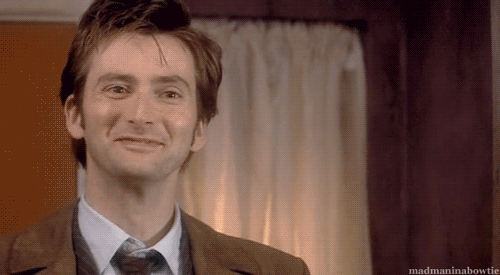
Because clearly:
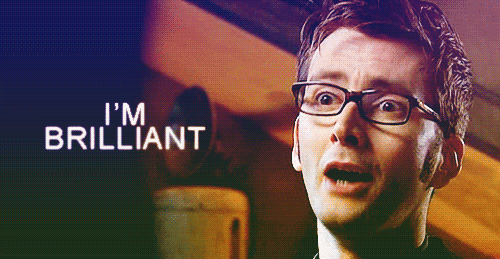
And also, I might be a wizard:
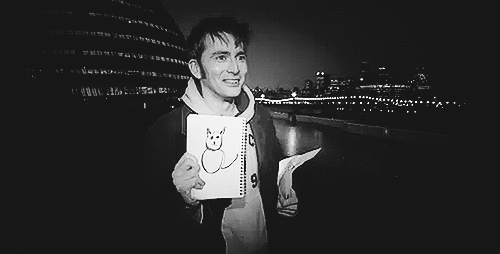
The sad part is that this never lasts. As I said it’s incredibly fleeting and you forget this almost immediately (which is why I am posting this!).
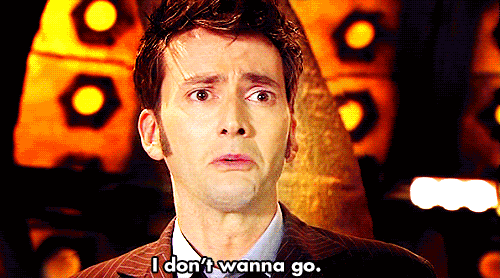
So you cling to it for as long as you can until you go back to doubting and questioning and brooding  and the next time it happens, it is just as surprising and unexpected as the last.
and the next time it happens, it is just as surprising and unexpected as the last.
This post was brought to you with the help of the amazing David Tennant – the handsome man with my absolutely favourite hyperbolic-emotion-face.
(Also, no Doctor like MY Doctor. David is my Doctor.)
May 2, 2013
Smut Marathon Challenge 1: The Tiny Cabin
As I have mentioned enough times to possibly start being a little bit annoying, I am a contestant in Alison Tyler‘s awesome Smut Marathon. This is the piece for the first challenge. Spoiler Alert: I ended up on 3rd place with it this round.
Challenge:
“Please pen me a 200-word (maximum) description of your ideal setting for an erotic story.That’s it. Ta da! Do not go over the word count.”
Piece:
A Tiny Cabin
Licking at the old and weathered wood of the pier, the ocean sends wave after wave against the sand several feet below us, the sea foam sizzling as it quietly disintegrates. The air is sticky and salty, but finally a cool breeze is blowing in the last light of the day and a torch splutters on the banister. Somewhere far away, the horizon is still visible – a patch of sky still orange and violet where it meets the sea. Outlined against it in the distance is a boat with billowing sails – I watch its slow progress towards the edge of the word.
Like the pier and the banister, the cabin is made of wood that has grown grey in the violent coastal weather. I am sitting at the side of the bed you carried out here, the white cotton sheets smell clean – a little stiff and starchy to the touch — and the salt has not yet defeated the scent of laundry detergent. White curtains flutter through the open French windows of the tiny cabin, as if moved by the smell of frying fish wafting through the door or the low-key, crackling music from the record player.
April 27, 2013
Body Positive Health and Exercise
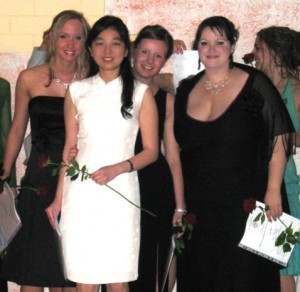
This is me at my graduation prom ’05. I was 19.
Today, I want to talk about something that is only very marginally connected to writing (or less marginally if you are a follower of the idea that a healthy mind only comes with a healthy body — a maxim I have often tried to ignore). They do belong together though, especially for writers who’s profession demands a lot of time sitting in front of computers. And it is important especially to me, because I am a woman of size, a fatty, a full-figured woman or whatever description springs to mind and sometimes I need a little more in terms of impulse to get moving than a skinny body (See what I did there? heh!).
I have spent most of my life in this body that has waxed and waned (more waxed than waned recently) with the years but I have never been thin. Maybe some other time I will go into what that does to someone psyche – living in a beauty and health-obsessed society looking like me… but today I actually want to talk about something else.
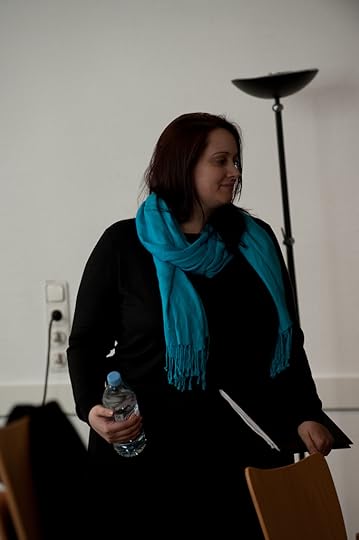
This is me at choir rehearsal in ’09.
All these years, and still today really, I have considered myself lazy. That is an easy conclusion to reach, considering that is all I ever hear about fat people. It was also easy because while I had times where I managed to visit a gym more or less regularly, I never really kept that up. Hence: lazy, right?
Maybe not. At least no more than averagely lazy. Because looking at it today, it doesn’t feel fair to compare my commitment to fitness to someone who already looks like they belong in a gym or in cute yoga pants. People who when they jog through the park, their boobs don’t bounce over a foot up and down, hurting something awful, people who are treated with respect by trainers and other patrons, people who don’t feel stared at and all wrong in these places when trainers don’t know how to address the needs of their bodies.
Maybe it wasn’t the exercise that ended up keeping me away. Like maybe it isn’t the outside that makes me sometimes break out in panic, but the people there who follow me around calling me hippo or stomping their feet like I might cause an earth-quake.

Early ’11 in an impromptu photshoot with my brother.
I have always felt attracted to eastern health ideas – not sure why. I am not religious or esoteric and that part interests me little but the way yoga for example seems to take care of the body feels like the right kind of idea to me. But like many women my size, we try a yoga video (because, lets face it, it takes a tremendous amount of guts to walk into a course at the gym knowing you won’t be able to do any of it) and all the girls who do it have perfect bodies that move and turn and twist in ways mine could never go. If just because there’s fat in the way, literally. And they talk about body-consciousness and breathing and feeling your body in a way that doesn’t seem to include my body at all.
My point is, that this morning, maybe initially in a bout of self-contempt, I googled “yoga for fat beginners” — and then I ended up crying because what I found moved me so deeply. What I found were women who looked like me — except, they were smiling at the idea of exercise and their faces were alive and beautiful and open and awake. There was nothing of the dejected sense of giving up that looks back at me so often, or I see in other women my size as they walk along the street or a supermarket isle. You see, just because I am big that doesn’t mean I am blind, I often find myself just as cruel in my head as some people are out loud to me – and all I see is fat, too, not woman. But looking at these, ALL I see is women, and they happen to be big. They aren’t fit and skinny women, telling me that years ago they looked like me – no, they are people like me who are smiling and in beautiful voices, looking happy and content, telling me about how to treat my body.

And this was New Year’s Eve 2011/2012 with some wonderful friends of mine.
And they language they use and the way they talk about themselves makes me feel safe. That was when I started to cry because I’d never felt that way in relation to exercise. Not once. I always felt like the odd one out, the ugly girl, the fat girl, I felt like I was doing something that everybody told me to do, but nobody wanted to see me doing. I have seen videos of trainers who are trying to talk to me as a big woman, but all they talk about is how to loose weight, how to make my body different and at the time trying to tell me to love my body. You look at their faces, and it’s not their fault, but you can see how uncomfortable they are, that they don’t know what words to use, what will make me feel bad and how to make me feel better when they have no idea.
I mean, really, look how fucking cute she is! And not in a patronizing way, just in a wow-she’s-gorgeous-and-intelligent-and-I-am-crushing-big-time kind of a way.
Not these women who do yoga for plus sized people. They seem to speak to me and it kind of blew me away. I tried some of it today and my body feels nice and elastic and I think the moment I’m out of debt, I want to buy their DVD’s and work on this harder. I don’t have something like plus size yoga in my town but maybe I can try it on my own. That’s another reason I put it here – to hold myself accountable, but also because I know I am not alone in a body like this (seen liberally peppered in pictures all over this entry) and if you feel at all affected by what I wrote, you should check it out too, and see if maybe we can all alter our sense of self and idea of exercise together.
Here are some links!
Megan Garcia – MegaYoga
CurvyYoga
Body Positive Yoga
April 22, 2013
Review: Frank Turner – Tape Deck Heart
Yes, Tape Deck Heart is not a book (although Frank Turner has been promising one for a while now!) but I always felt like music and writing are very closely related – poetry and stories set to melody, while what we do is trying to create melody in the stories and in the way the words are spoken out loud.
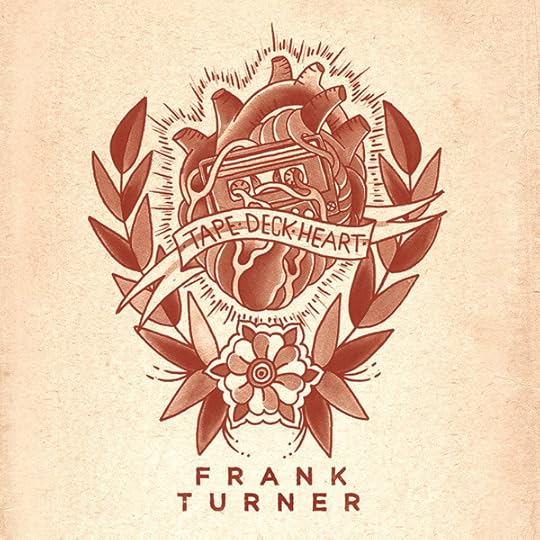 Tape Deck Heart is also the first album this year that is making me absolutely and positively giddy with excitement. It has been for months waiting for it, and it certain does now that I can finally listen to it. Described as a break-up album, Tape Deck Heart has a beautiful inner consistency of sound and feeling that speaks me deeply. It also rings back to an older Frank Turner, one before Wembley and England Keep My Bones (which I liked but found a bit too varied and can never listen to from start to finish). It feels more grown-up and more aware of his roots while taking them to much more mature place sound-wise. As an album it definitely restored my faith in this genre and the strange change that can sometimes accompany wider fame. Frank has definitely passed with flying colours here and I can’t wait for what he comes up with next.
Tape Deck Heart is also the first album this year that is making me absolutely and positively giddy with excitement. It has been for months waiting for it, and it certain does now that I can finally listen to it. Described as a break-up album, Tape Deck Heart has a beautiful inner consistency of sound and feeling that speaks me deeply. It also rings back to an older Frank Turner, one before Wembley and England Keep My Bones (which I liked but found a bit too varied and can never listen to from start to finish). It feels more grown-up and more aware of his roots while taking them to much more mature place sound-wise. As an album it definitely restored my faith in this genre and the strange change that can sometimes accompany wider fame. Frank has definitely passed with flying colours here and I can’t wait for what he comes up with next.
You kind of remind me
of scars on my arms
that I made when I was a kid,
With a disassembled
disposable razor I stole
from my dad,
When I thought that suffering
was something profound, that
weighed down on wise heads,
And not just something to be avoided,
Something normal people dread.
– Tell Tale Signs
At the moment, I am particularly enchanted by Plain Sailing Weather, Tell Tale Signs and — heard live before and after waiting for months to listen to in studio quality: Polaroid Picture. In fact there is literally only one song that I am less than impressed by - Tattoos – which seems a little bit too high on the sentiment scale or too low on the artistry. But that is on the Deluxe Edition as it is.
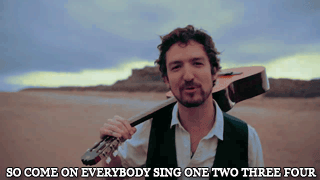
For long-time fans, the album does bring back long-familiar sounds, beautiful new lyrics and the raw, bold, aching honesty that we we know Frank so well for. There are even a few songs that somehow transport me right back into the youth centres and the tiny stages, the sole troubadour with the guitar that I can’t help but miss sometimes. If you have never heard of him, go pick it up – it represents him really well, I think.
April 19, 2013
A few Words on Weakness
[reposted from my guest blog entry on the Crimson Romance website]
There is an old adage saying that the only time we can be brave, is when we are afraid. The only time we can truly be strong, is when we are weak and fight it, whether we win or not. I have always found this to hold true in my life and in what I have observed. It holds true for the people I admire and for those I wish to emulate. It also applies to the characters in the canon of literature that have captured my heart and my imagination, that have made me want to write.
The stories I have grown up with are those in which the heroes and heroines first had to overcome themselves; and they have left the deepest traces inside of me. There is Bastian in The Never-Ending Story: weak of body and weak-willed when tempted with power. His friend Atreyu is his opposite, raised from birth to bravery and to resist temptations. And yet my heart always stayed with Bastian, through all his bad choices that seemed so understandable at the time all through the end, when he saved himself through weakness. Through letting it all go and allowing Atreyu to be strong and brave for him, without shame. To me, Bastian was the stronger of the two, because strength never once came easily to him.
In this way, I am enamored by weakness in literature and in writing. I have a chronic anxiety disorder und I have battled with my own weakness all my life – I suppose it is no wonder that I am attracted to characters whose strength is a hard-won trait and not just something they have from the start.
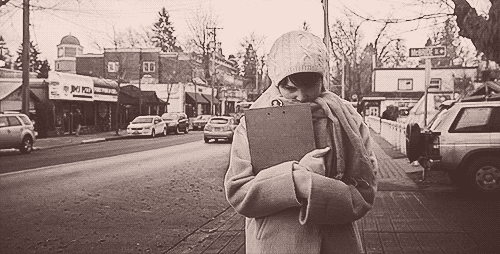
Now that I write for others and not just myself, this presented me with some difficulties. I am a feminist and almost too opinionated if there is such a thing. I like to write about women, too, I enjoy that mind-set and the emotional payback. But I was definitely afraid of perpetuating some idea of women as weak, as the ingénue, the princess, the maid tied to a rock waiting for her prince to come and save her. I do not believe in that idea. And yet, I am personally almost completely disinterested in writing about cool, tough, and hard strength.
I watch movies with female warriors and always wonder why a strong woman so often has to be a hot girl playing a male role. And then I remind myself of the truth in the aforementioned saying and I remember how much it means to me.
Only when we are afraid can we be brave. Only from weakness can we be strong. And then I go back, writing characters I like – men and women, both strong and both weak, each in their own way. I am attracted to that weakness, to flaws, fears, pride and cowardice. In the story of Troy – even now I root for Paris not for Hector.
In By the Light of the Moon, Moira, the heroine, starts off at her lowest point; but from there, all she can do is rise. She rises throughout the first book, slowly, step by step finding the strength inside of her, and she continues to search for it and grasp it in the sequel I am writing at present. There is something empowering to me about this journey, something I like to turn to at the end of the day, when I feel weak myself. I love weakness, both when it is overcome and when it catches you again. It is what keeps us human and honest and open. And I love writing about it in all its different manifestations.
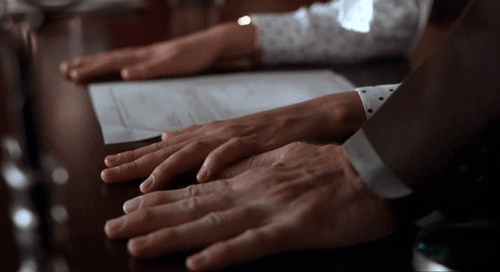
April 11, 2013
L.C. Spoering interviewing Yours Truly

L.C. Spoering
L.C. Spoering, a wonderful writer and blogger and also my best friend and writing partner, interviewed me for her blog last week. It’s well worth a visit and you should definitely follow her on twitter — be hipster and like her before she’s famous because, believe me, she will be!
Anyway, I found that the interview allowed me so say so much that was important to me — about issues like feminism and sexuality — that I want to repost it here.
Lorrie: Being as Laila and I spend 90% of our day in some kind of contact with one another, I asked her to answer some questions about subjects we’ve discussed both as writers and consumers of books and stories of all stripes. I hope you enjoy reading her answers as much as I did.
Often decried as gratuitous or unnecessary, sex and otherwise adult scenes are something you are interested in writing, and include in your stories. How do you approach adult scenes in books?
Laila: I approach them as an intricate part of my character’s emotional journey. I actually find it quite fascinating that as a culture, we manage to do something quite unique to the experience of sex: we simultaneously place a general taboo on the subject and call it bad, dirty, wrong etc. and at the same time place a ridiculously exaggerated amount of importance on it, too. No wonder it is terribly complicated being a teenager.
For me, sex is part of the human experience. In certain circumstances it can be an extraordinary important part – in others, it is something rather ordinary and almost boring. Describing it in either way says a lot of about people or the state of the relationship which otherwise would have been lacking. I am not always a fan of the old adage of show don’t tell, but in sex matters I really feel cheated when it is all tell, or when the sexual component of a relationship is just ignored as something that can easily be omitted. And that after all the taboo and over-excitement drama! The fact is, that we all live in a culture that has made us acutely aware of our sex-life – so much in fact, that most people have some kind of insecurity or worries, secret fantasies and guilty secrets. That is such beautiful material to be explored.
I can easily imagine writing a story without sex in it — but then there is literally no intimate relationship present in this book. Otherwise I feel like I am omitting something. It doesn’t always have to drag on over pages, explicit descriptions can be stunning and hot and incredibly characterizing in just a paragraph or two, but I just disagree with glossing over them.
I would also like to loose some words on the idea gratuitous sex. I find that a difficult idea. Gratuitous seems to mean that it is just there for its own sake, but we only really notice it when it is bad gratuitous sex á la The Room. Or speaking in books, the kind where every 50 pages there is another sex scene that hardly varies from the last and doesn’t do anything for you – either to further the story, the character development or to turn you on. That is bad. Gratuitous sex where it isn’t boring – hell, I’m all for it! I like a multi-sensory reading experience where I’m laughing one moment, crying the next and then suddenly feel a tingling between my legs. All part of the human experience.
Lorrie: Many of the issues you approach in the book are viewed as more “contemporary,” such as anxiety and mental illness, self-harm and feminism. What did setting the story in a historical fantasy world do for your relation of these issues?
Laila: In a way, it helps to abstract them. You can write about them without a lot of preconceived notions and words that have become laden with prejudice and associations. Moira, for example, is clearly a feminist — but the word feminist is so laden with ideas and sometimes horrifying ideas about man-haters etc. The simple truth is that Moira has this notion that it simply doesn’t seem right that she is considered not intelligent enough to rule. She doesn’t have decades of a woman’s movement to support that notion but it is there. Similar things are true about her mental issues – by giving them names like anxiety, depression, self-harm etc. they are immediately pushed into boxes that we all naturally have. Setting it in a world without these words allowed me to describe them without giving them names, giving the reader the chance to let their compassion guide them. I find this a rather interesting instrument to talk about serious issues.
Lorrie: In order to be viewed as a “strong female character,” heroines often have to act MORE like a man (i.e. physical, aggressive, violent, etc). Moira is decidedly none of these things. What kind of efforts did you make to ensure she was both strong, yet uniquely herself at the same time?
Laila: It was important to me that Moira has her own mind. She is intelligent but because nobody expects her to be or needs her to be, that trait was never truly nourished. This is why her tutor Brock is so important to her and why they have an interesting relationship. At the same time, a lot of that undervalued potential ends up flowing into an almost petulant anger and frustration, searching for a way to be heard and understood.
The other thing that was important to me is her choosing Owain. For her, something as simple as love is rebellion, is leaving everything she knows for her freedom to choose a life for herself and to choose someone who doesn’t see her as a commodity. And with that one choice, she sets off on a path of empowering herself, which is something really wonderful to write about across this series. I don’t see it as him saving her, they are choosing each other, and the consequences inherent in that decision.
Lorrie: Gender roles play a large part in your story, as well as most historical fantasy. Many of the female characters in the book (Maeve and Niamh in particular) seem to eschew perceptions of what a woman can and can’t do. How did you approach that in the historical context, without making it seem glaringly contemporary?
Laila: Partly, there is that wonderful device in speculative fiction that allows you to simply transcend the historical context. If this was medieval history, characters like them could not exist. However, in By the Light of the Moon, Maeve and Niamh are fae. They come from a distinctly different culture. I have left a lot about the fae nebulous for a reason, letting the characters speak for it more than anything else, but from Maeve and Niamh – and even from Moira’s ancestral memory that something about her assumed subservience is wrong – it is easy to deduce that for Fae the distinction between male and female gender roles is far less stark. They are more fluid, value skills, beauty and knowledge rather than gender and they display the same fluidity in their sexuality. It is interesting to contrast that against such a patriarchal world as the human system.
Laila: We’ve been writing together! I’m going to make you talk more about it so I don’t look like I’m tooting my own horn.

Laila: We have indeed! Quite a lot actually. We have been working on two projects now (two and half-dreamed up one, really). The first was a very sweet, romantic bdsm story. In it’s first draft, that is actually finished. We have to go back to editing soon, and it’s making my heart ache it’s so sweet. And at the moment, we are writing something that we’d call a New Adult zombie post apocalypse novel — because everybody likes a good zombie fighter! … Right? It’s a lot of fun, packed with angst and emotions, and all those drama shenanigans.
We are also planning on putting together a kind of nerd/geek/dork porn anthology – basically porn about people like us and we people we like. Which now sounds a little self-serving come to think of it, but we think this just has to exist.
April 8, 2013
Release Day Insanity!
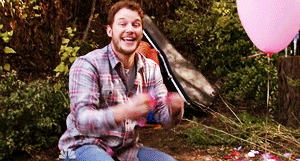
Yes, it’s April 8th 2013 and the official release day of
By the Light of the Moon

This is why I am forced to post this long and gif heavy update on the blog-tour, my life, and everything. Because, while I am indeed an author – and it has never quite felt as crazy as right now, I find myself rather incapable of expressing all my emotions in written form. Also I love gifs.
So it all started very much like this:
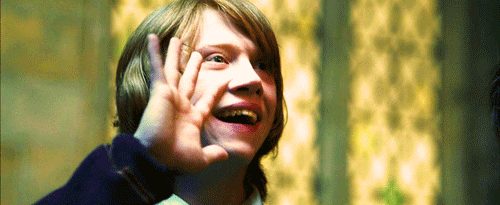
“Hai, um, I sort of wrote something, Mr. or Ms. Agent/Publisher – it’s a sort of… thing! It has werewolves and fae and love and stuff!”
Unsurprisingly, a lot people said, “Um, thank you for considering us, silly newbie, but we will continue to represent people who are far more eloquent than you just proved yourself to be…”
And I felt very much like this:
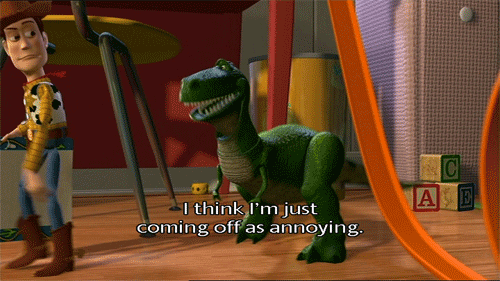
But then — miracle of miracles! — I got an email one morning. It was an email by my wonderful acquisitions editor Jennifer Lawler of Crimson Romance. And I hope she doesn’t mind if I quote her here:
“Hi Laila — Thank you so much for giving us the chance to consider [By the Light of the Moon working title]. I’d love to have it for Crimson Romance. [...]“
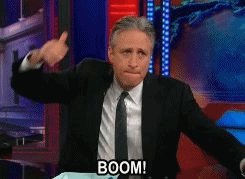
I mean, I was — I am — just this girl with a dream that was slightly too big for herself and someone just casually informed me that, here we are, this is it. This is where it can start coming true!
So first I was like…
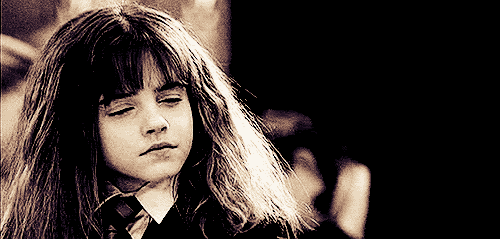
“What… me?!”
And then almost immediately, and predictably, this happened. A lot. A lot, a lot.
 Also for the longest time, I was utterly convinced, this was some kind of joke and sooner or later, someone would start laughing or be like “Oh, ooops, THAT was your manuscript. Ehh, yeah this is awkward.” And everything would be:
Also for the longest time, I was utterly convinced, this was some kind of joke and sooner or later, someone would start laughing or be like “Oh, ooops, THAT was your manuscript. Ehh, yeah this is awkward.” And everything would be:
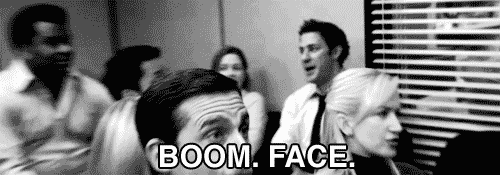
[Okay, yes, this gif is just a gratuitous John Krasinski one.]
But that’s how it all started. And from there, everything has just been happening so, so fast. I got an editor, we worked on the manuscript, we changed the title, and I was given a cover and each weak something new seemed to happen, keeping me always at the verge of that crying gif. Also these ones:
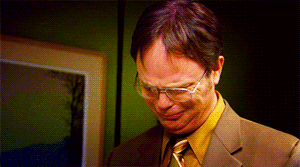
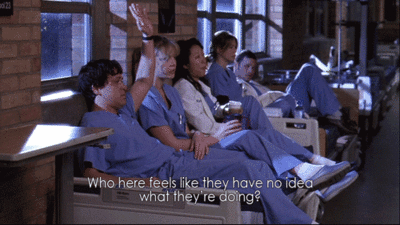
I played around with social media, met other authors and reviewers and saw what wonderful people they all are and how much belief it takes to be in this field. It’s wonderful and I love everybody I’ve met – it’s amazing to be part of this vast internet community so devoted to books. It’s perfect, just perfect! And I realized how much I love reading about successes and the joy in authors and about the excitement of readers, cracking open a new release for the first time.

You are my people. And I love you!
And so now it’s release day and the blog-tour has been running wonderfully for a week. The consensus so far seems to be that my book is very unique and a little bit confusing but ultimately a beautiful love story. And, hey, that’s exactly my kind of book! Unique and a little confusing? How that is that anything but a compliment?
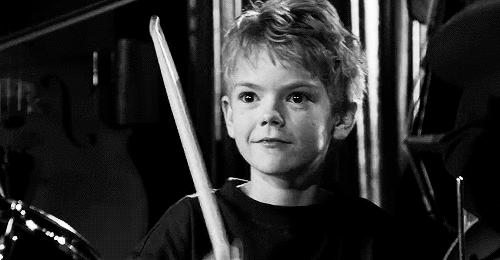
And since then I have tried to remind myself of these two truths:
1. No book is for everybody. We all read on the basis of our experiences, our personality and the other things we’ve read. So technically whatever we read, we never read the same thing because it is filtered through who we are. Just look at some of the opinions on your favourite tv show — it’s like they are are not seeing the same thing at all!
2. This is my very first book. It is something to learn from, a first step. It is published in a beautiful but still small press and I want to soak up all feedback and internalize it and become a better writer from it.
Basically I was desperately trying to make myself believe I was doing this:
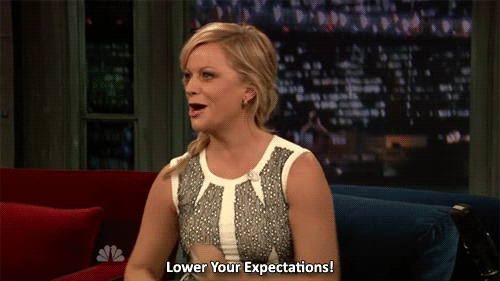
While really I was really doing this:
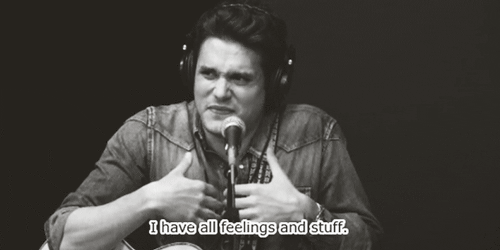
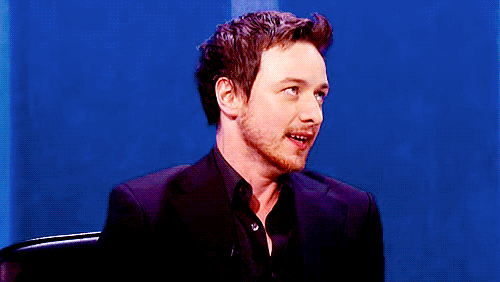
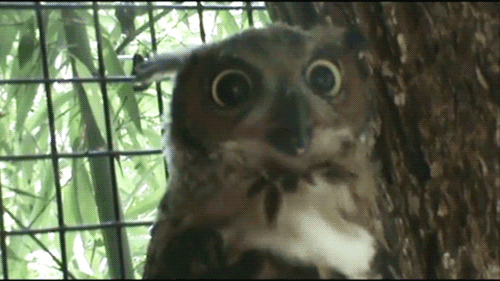
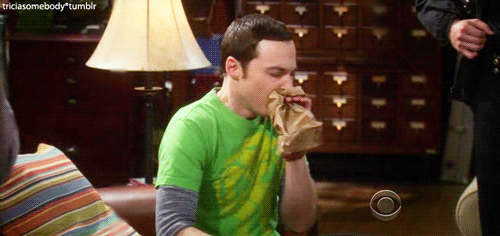
But today, is release day. And today, I’m this:
